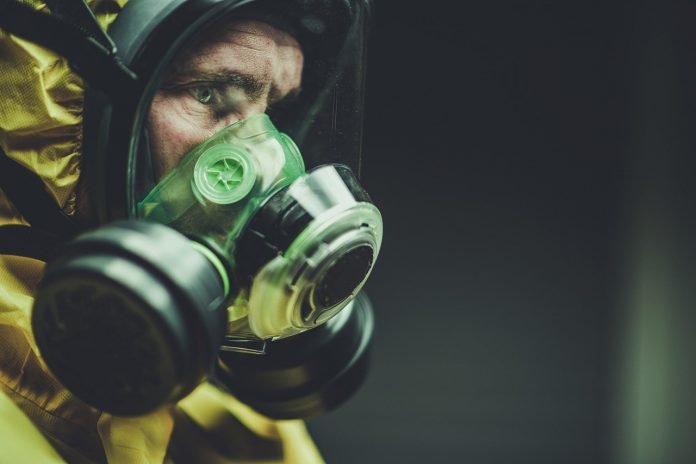
In a new study, researchers have designed a “catch and kill” air filter that can trap the virus responsible for COVID-19, killing it instantly.
They reported that virus tests at the Galveston National Laboratory found 99.8% of the novel SARS-CoV-2, the virus that causes COVID-19, was killed in a single pass through a filter made from commercially available nickel foam heated to 200 degrees Centigrade, or about 392 degrees Fahrenheit.
It also killed 99.9% of the anthrax spores in testing at the national lab.
The research was conducted by a team from the University of Houston and elsewhere.
The researchers knew the virus can remain in the air for about three hours, meaning a filter that could remove it quickly was a viable plan.
With businesses reopening, controlling the spread in air-conditioned spaces was urgent.
The virus can’t survive temperatures above 70 degrees Centigrade, about 158 degrees Fahrenheit, so the researchers decided to use a heated filter.
By making the filter temperature far hotter—about 200 C—they were able to kill the virus almost instantly.
The team suggested using nickel foam, saying it met several key requirements: It is porous, allowing the flow of air, and electrically conductive, which allowed it to be heated. It is also flexible.
But nickel foam has low resistivity, making it difficult to raise the temperature high enough to quickly kill the virus.
The researchers solved that problem by folding the foam, connecting multiple compartments with electrical wires to increase the resistance high enough to raise the temperature as high as 250 degrees C.
By making the filter electrically heated, rather than heating it from an external source, the researchers said they minimized the amount of heat that escaped from the filter, allowing the air conditioning to function with minimal strain.
A prototype was built by a local workshop and first tested for the relationship between voltage/current and temperature; it then went to the Galveston lab to be tested for its ability to kill the virus.
It satisfies the requirements for conventional heating, ventilation, and air conditioning (HVAC) systems.
The team says this filter could be useful in airports and in airplanes, in office buildings, schools, and cruise ships to stop the spread of COVID-19.
Its ability to help control the spread of the virus could be very useful for society.
The team is also proposing a desk-top model, capable of purifying the air in an office worker’s immediate surroundings.
One author of the study is Zhifeng Ren, director of the Texas Center for Superconductivity at UH.
The study is published in Materials Today Physics.
Copyright © 2020 Knowridge Science Report. All rights reserved.



